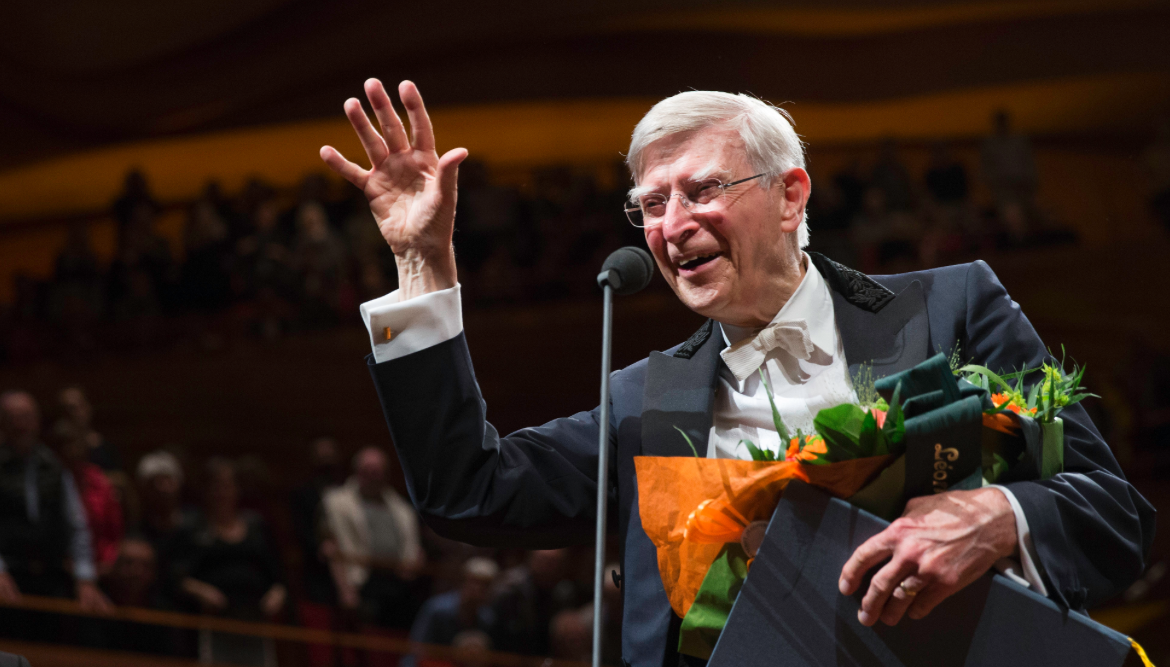Léonie Sonning Prize 2004
The American pianist Keith Jarrett received the Léonie Sonning Music Prize of 500,000 Danish kroner at a concert during Copenhagen Jazz Festival on 7 July 2004 at the Tivoli Concert Hall in Copenhagen.
The prize was presented by Tivoli’s Head of Music, Lars Grunth, a member of the Léonie Sonning Music Foundation’s board.
citation
The Léonie Sonning Music Prize 2004, of 500,000 Danish kroner, is awarded to the pianist Keith Jarrett, who as a musical thinker and creator has developed his own unmistakable musical language that manifests itself in sublime music, imagination and intellect. Keith Jarrett has experimented and renewed without rejecting tradition and without succumbing to trend. He stands today as one of the greatest figures on the international jazz scene.
programme
Jazz standards, among others:
You belong to me
Tennessee Waltz
Django
God bless the child
When I fall in love
Participants
Keith Jarrett, piano
Gary Peacock, bass
Jack DeJohnette, percussion
Keith Jarrett and Denmark
Keith Jarrett has been known and admired by Danish jazz fans since he performed in Copenhagen for the first time in 1966. Since then he has played in Copenhagen several times, appearing at the Tivoli Concert Hall and at the 1999 Copenhagen Jazz Festival, when he gave a concert at the Cirkus Building. In the 1980s, he also began playing classical music and became well known in Denmark for his collaboration with Michala Petri in 1992, with whom he recorded Bach’s flute sonatas. That album was followed in 1999 with a recording of Handel’s flute sonatas.
The Daily Press wrote among other things:
The sun came out for the first time this jazz week on the day Keith Jarrett visited Copenhagen to perform. It was a warning that the master of masters, the powerhouse Keith Jarrett, would sit down at a grand piano at the Tivoli Concert Hall that evening and offer a lucky few a vision of the sublime. And he did not disappoint. On the contrary. He was joined by his ensemble partners Gary Peacock and Jack DeJohnette, and together they gave us a glimpse of heaven as the sun shone down on Tivoli. It was as if Jarrett had decided once again to prove the wisdom of the prize committee’s words, that he is a musician who ranges far. The concert included everything from blues to classical. Jarrett constantly sought out the edges of possibility in his improvisations, as if constantly curious to see how far he could stretch the elastic – how far he could lure his companions and himself. For almost two hours the elastic was stretched, but it did not snap.
(Anders Jørgensen, Information, 9 July 2004)
Sometimes he stands up when he plays, sometimes he is hunched over the keys. In this way, he lives by his heartbreaking phrasings and carries them further than you would have imagined, much like a singer can impress with long phrases in one breath.
(Eva Hvidt, Kristelig Dagblad)
In the field of artistic endeavor, you have to be careful not to describe someone as “the best”. But when it comes to Jarrett, it is still hard to point to another pianist on today’s jazz scene who is his equal. Even Jarrett himself refers to the gift he has received as from above, as if it is not through his own merit that he has reached the status he now enjoys. Or rather, the status he has enjoyed for several years. Of course, it is not the whole truth. For there has surely been colossal work involved in acquiring the pianistic skill that allows him to give so much of himself. And it also requires considerable personal effort to be able to open music up in the way Jarrett does. For only then does the gift he has received show is real value.
(Boris Rabinowitsch, Politiken, 9 July 2004)





